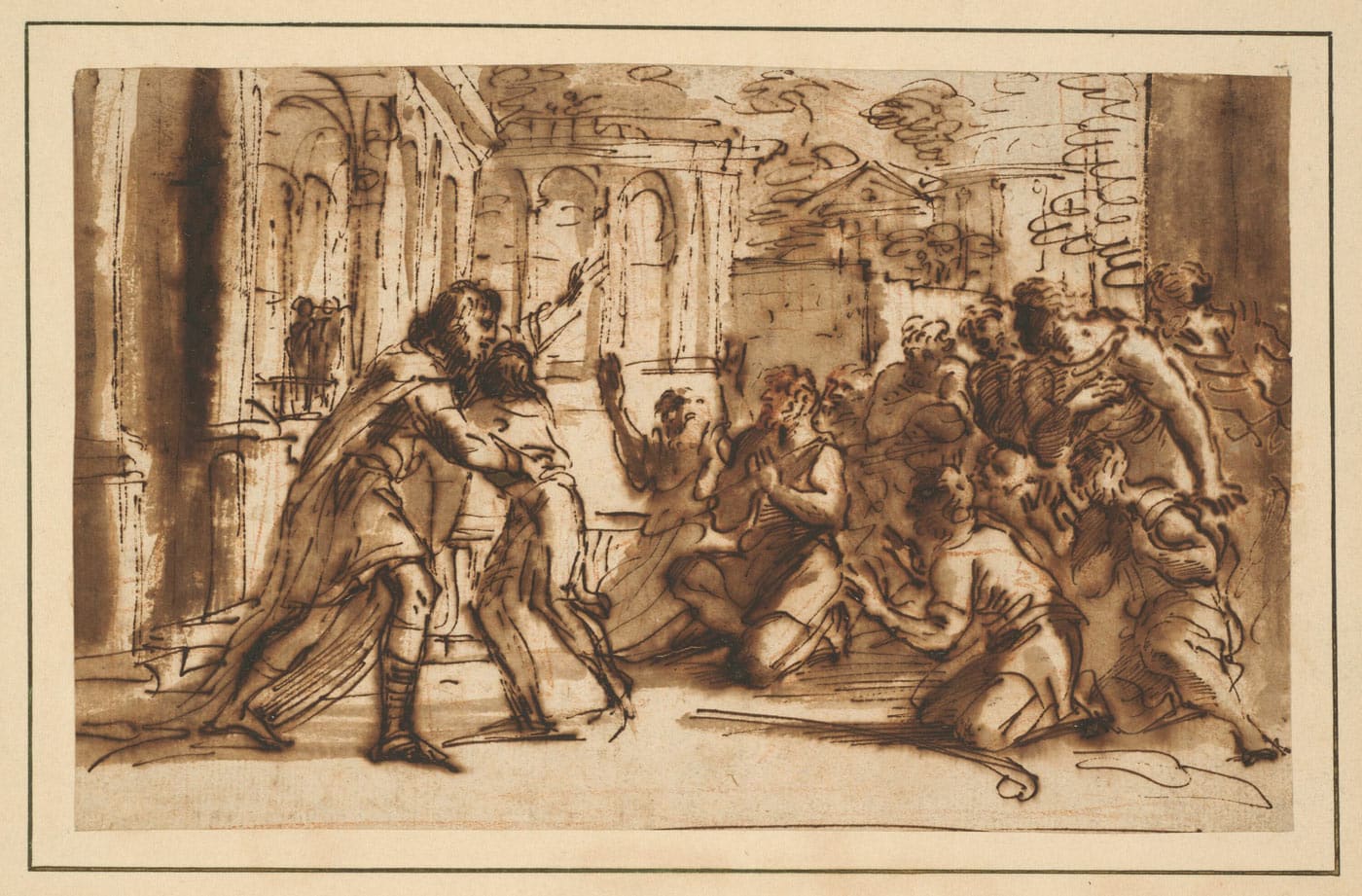Social Status in Colossians, a Snapshot
In ancient Rome, slavery dominated. The NET Bible says that slaves comprised an estimated 10–20% of the population in the first century A.D.1 and were considered “’property’ in every sense of the word.”2 It’s in this context that Paul the Apostle writes final greetings to the church of Colossae and uses words that should push us to question our own views of societal position and spiritual vocation.
The final chapter of Colossians focuses almost entirely on greetings and news. In a world where sending a message could take days or weeks and every face-to-face interaction could be the last one, we can understand the urgent need to send news from all the believers in Paul’s circle in Rome to specific individuals in Colossae.
Paul writes of the messengers bearing his letter: “I sent him with Onesimus, the faithful and dear brother, who is one of you” (Col 4:9a NET Bible). Those of us who have read the entire New Testament will recognize the name of Onesimus: Philemon reveals to us that Onesimus is a slave.
One would think we could find this out in the book of Colossians. Surely, there must be some clue. And the word rendered “slave” in the NET Bible does appear in this section but not about Onesimus. On the contrary, the Scripture identifies Onesimus only as a “faithful and dear brother, who is one of you.”
So, if Paul doesn’t call Onesimus a slave, who does this letter refer to as a slave? Two people, in fact. Just two verses before Onesimus’ mention, the letter mentions his travelling companion: “Tychicus, a dear brother, faithful minister, and fellow slave in the Lord, will tell you all the news about me” (Col 4:7 NET Bible). The chapter uses the Greek word δοῦλος (meaning “bondservant” or “slave”) again in verse 12: “Epaphras, who is one of you and a slave of Christ, greets you” (Col 4:12).
Onemisus’ societal position is that of a slave, and the Scripture doesn’t care. In a one-sentence summary of his life, memorialized for the rest of history, Colossians calls him “faithful and dear brother.” As for Tychicus and Epaphras—try saying that five times fast—their “slavery” or status as bondservants is not societal at all: they are slaves in and to Christ.
These are just three verses, but they offer profound conclusions. Firstly, God doesn’t care about others’ social status, and neither should we. Modern slavery is rare (in the modern West, at least), but prejudice will beat in the human heart until the return of Christ. At whom do you shudder and turn away, thinking, “I can’t be that person’s friend”? Is it the very poor? The very rich? Republicans? Democrats? We should seek to say to ourselves, “she is a faithful and dear sister,” regardless of our innate comfort level with the members of Christ’s church.
Secondly, God doesn’t care about your social status. When you consider your origins, your family, your habits, your looks, ask yourself: “Where do I feel shame?” The first person to approach about that shame is our all-loving and accepting God, who made us, sees us as we are, and lovingly accepts us just like He did Onesimus. The second person to approach is another believer. Psychologist Curt Thompson has shown in his work, The Soul of Shame,3 that one of the most potent methods of healing shame is to tell a friend our secret and receive their acceptance.
Note that this profound lesson does not apply in the same way to patterns of sin; our approach to sin should be to give sin up, and seek God’s forgiveness; not to pursue it, and seek God’s acceptance.
Thirdly, God is asking for our complete commitment to His Son, Jesus Christ. He wants our thoughts, our lives, our habits, our relationships, and our time. Ask yourself: “Could I call myself a slave to Christ?”
In all frankness, I sometimes feel less like a “slave” to Christ and more like a hobbyist. But God’s mercies are new every morning, and He is the one who equips and inspires me to recommit myself. His invitation to a lifetime commitment stands; He is asking you to be a δοῦλος, too.
Notes
1 “Slavery in Ancient Rome,” (Web.), British Museum, https://www.britishmuseum.org/exhibitions/nero-man-behind-myth/slavery-ancient-rome.
2 W. Hall Harris, eds. The NET Bible Notes. 2nd ed. (Nashville: Thomas Nelson, 2019), paragraph 86049.
3 C. Thompson, The Soul of Shame: Retelling the Stories We Believe About Ourselves (InterVarsity Press, 2015).




0 Comments